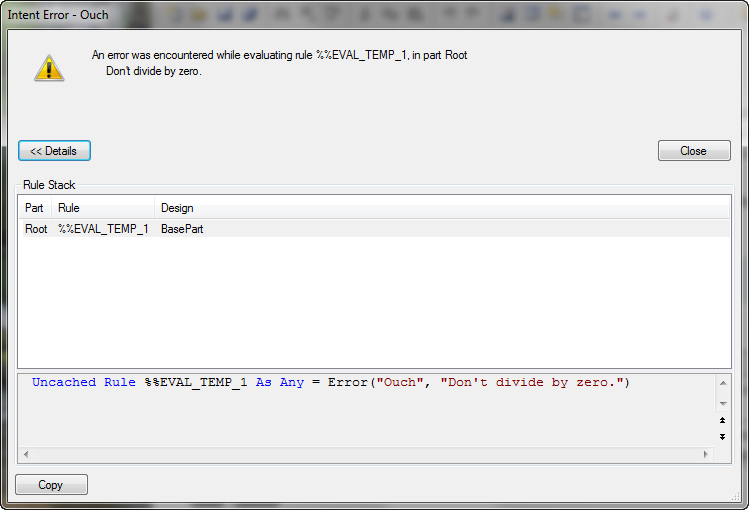Synopsis
Raises an error, using the given string as the error message. The error, like all built-in language errors, is always fatal to the current computation. The actual effect of the error depends on the environment in which the rules are running. In Inventor, you will see a "normal" error handler window, like the one shown in the examples. In custom user-interfaces, it is up to the UI to display the error in an application-specific fashion.
This function will never return to the caller; it will raise an error, which terminates the current execution unit.
Syntax
error ( title as String, _
message as String ) As Any
| Argument | Type | Description |
|---|---|---|
| title | String | the string to display as the title in the error handler window; typically a short phrase. |
| message | String | The string to display as the error message; generally a longer description of the error, and can even span multiple lines using the newline() function. |
Example 1
Intent >error("Ouch", "Don't divide by zero.")
Result: 
In the error dialog, access to the entire execution stack is provided.